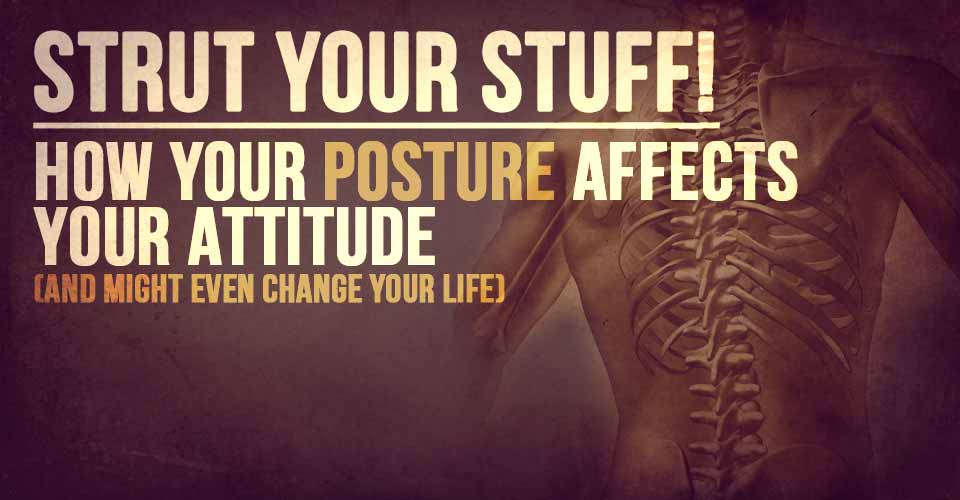Strut Your Stuff! How Your Posture Affects Your Attitude (And Might Even Change Your Life)

It’s easy to tell how someone is feeling by the way they carry themselves. People who are feeling down or low or dealing with anxiety or depression tend to be hunched over, move slowly, and make small arm movements. Conversely, people who are feeling good or happy display an upright posture, make generous motions, and walk more quickly. A study conducted by psychologists from Columbia and Harvard Universities has shown, however, that the opposite is also true: how you carry yourself can actually affect how you are feeling.
‘Fake it ‘til we become it.’ -Amy Cuddey
The research was conducted by a careful study of participants: they were first shown a list of words, both positive and negative. Then, they were instructed to walk on a treadmill. A gauge on the treadmill moved based on their postures: it moved left or right based on the person’s posture being more upright (happy) or slumped over (sad). The participants weren’t told what made the gauge move but, study co-author Nikolaus Troje stated, “they would learn very quickly to walk the way we wanted them to walk.” After they finished walking they were asked to recall as many words from the list they were shown as possible. While the participants who demonstrated a negative posture recounted more words overall, they also recalled more negative words. The participants who walked with an upright or happy posture recalled more positive words.
Is on the heels of multiple other studies that have proven a correlation between posture and depression. This study, conducted in 1996, showed that people who were shown a list of words having to do with old age walked more slowly down a hallway than control subjects. Our postures demonstrate how we are feeling and, it appears, the opposite is true as well. As Amy Cuddey, as Harvard researcher who co-founded the treadmill study, has said, “We don’t just fake it ’til we make it. We fake it ’til we become it.”
A New Treatment For Depression
This is great news in particular for patients suffering with depression. Exercise has been proven repeatedly to help with depression, but it is one of the most underutilized tools. Patients who are encouraged to walk in order to increase endorphin levels and improve bloodflow to help aid their depression may now be encouraged to walk with more confident gaits.
Patients suffering from depression tend to remember negative more than positive words and their moods generally tend to dictate the formation of more negative memories. This becomes problematic as it is a self-perpetuating cycle, but, as Troje states, ““If you can break that self-perpetuating cycle, you might have a strong therapeutic tool to work with depressive patients.” The treadmill study, among others, suggests that simply projecting confidence, carrying yourself with a more upright gait, and moving in a more self-assured manner may be just the therapeutic tool these patients need.
The Mental Health Arsenal
There’s no shortage of tools out there to fight depression. It’s a tough one to combat because it expresses differently in every affected individual, and in America, it’s estimated that as many as 14.8 million adults are suffering from major depressive disorder. Adding yet another effective mechanism to defeat this illness means a chance of restoring balance and happiness to unknown numbers of sufferers. That being said, this page, this page, and this page also contain some further great ideas on combating depression. And as anyone who has suffered from this illness knows, you can’t possibly have enough tools in your mental health arsenal to ensure your triumph. So strut your stuff! Sometimes you just have to fake it until you become it.


